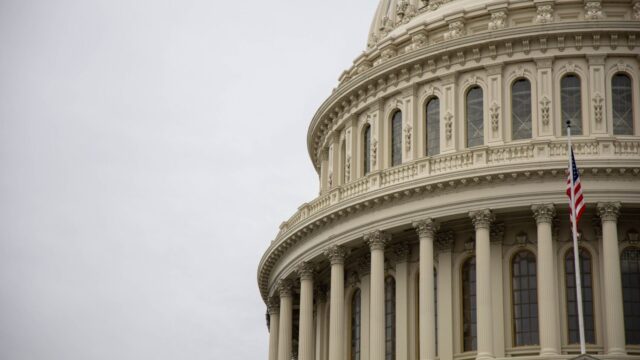BCHC Supports Improving Data Collection for ACES Act
July 2022

July 11, 2022
The Honorable Angus King
133 Hart Building
U.S. Senate
Washington, DC 20510
The Honorable Lisa Murkowski
522 Hart Building
U.S. House of Representatives
Washington, DC 20510
Dear Senators King and Murkowski:
We write to express our strong support for the Improving Data Collection for Adverse Childhood Experiences Act, which you introduced in May. This vital piece of legislation will build upon previous studies on Adverse Childhood Experiences (ACEs) in innovative and equitable ways.
This critical research would inform current and future programs aimed at mitigating the negative effects of ACEs and promoting the health and well-being of children, families, and communities nationwide.
ACEs are potentially traumatic events—in connection with abuse, neglect, and high community rates of violence, crime, or poverty—that occur in childhood and can have long-lasting effects on the life of an individual. As the number of ACEs an individual experiences increases, so does the risk for negative health outcomes like asthma, diabetes, cancer, substance use, and suicide in adulthood. The Centers for Disease Control and Prevention (CDC) estimate that 61% of adults report having experienced at least one ACE in their lifetime, and the prevention of ACEs could reduce cases of depression in adults by 44% and avoid 1.9 million cases of heart disease.1 CDC has also noted that economic insecurity resulting from the COVID-19 pandemic can lead to ACEs by increasing the risk of violence and inconsistent access to food, transportation, and housing.2
The original ACEs study, which CDC and Kaiser Permanente conducted, significantly advanced our understanding of these effects. By categorizing ACEs into three groups—abuse, neglect, and household challenges—it demonstrated the link between the volume of ACEs and the risk of negative health outcomes.3 The study, however, lacked a representative study population (focusing instead on predominantly white and middle-income patients) and insufficiently measured the impact of social and economic conditions.4
The Improving Data Collection for ACEs Act would enable CDC to build on the original study while addressing these concerns. The new study, for example, would focus on equity by including a diverse, nationally representative sample and examine the strength of the relationship between ACEs and negative health outcomes, the intensity and frequency of ACEs, and the relative influence of particular risk and protective factors. The legislation would also expand the scope of CDC’s research to include the effects of social, economic, and community conditions on health and well-being. This critical research would inform current and future programs aimed at mitigating the negative effects of ACEs and promoting the health and well-being of children, families, and communities nationwide.
We applaud your bipartisan efforts to expand our knowledge of ACEs and how best to address their long-term health effects. Please reach out to Brandon Reavis, Senior Government Relations Manager at Trust for America’s Health, at breavis@tfah.org with any questions or requests.
Sincerely,
2020 Mom American Academy of Social Work and Social Welfare
American Association for Psychoanalysis in Clinical Social Work
American Counseling Association
American Foundation for Suicide Prevention
American Group Psychotherapy Association
American Psychiatric Association
American Psychological Association
Anxiety and Depression Association of America
Association of Maternal & Child Health Programs
Association of State and Territorial Health Officials
Big Cities Health Coalition
Children and Adults with Attention-Deficit/Hyperactivity Disorder
Children’s Hospital Association
Clinical Social Work Association
Crisis Text Line
Eating Disorders Coalition for Research, Policy & Action (EDC)
Endocrine Society
Global Alliance for Behavioral Health and Social Justice
Inner Explorer
International OCD Foundation
Maternal Mental Health Leadership Alliance
Mental Health America
MENTOR
MindWise Innovations
National Alliance on Mental Illness
National Association for Children’s Behavioral Health
National Association for Rural Mental Health National Association of County Behavioral Health and Developmental Disability Directors
National Association of Pediatric Nurse Practitioners
National Association of Social Workers
National League for Nursing
REDC
Sandy Hook Promise
Social Current
The Kennedy Forum
Trust for America’s Health
- Justification of Estimates for Appropriation Committees. Atlanta: Centers for Disease Control and Prevention, 2021. https://www.cdc.gov/budget/documents/fy2022/FY-2022-CDC-congressional-justification.pdf (accessed June 15, 2022); Preventing Adverse Childhood Experiences. In Centers for Disease Control and Prevention, Violence Prevention, updated April 6, 2021.
- https://www.cdc.gov/violenceprevention/aces/fastfact.html?CDC_AA_ refVal=https%3A%2F%2Fwww.cdc.gov%2Fviolenceprevention%2Facestudy%2Ffastfact.html (accessed June 15, 2022).
- COVID-19 Parental Resources Kit – Early Childhood. In Centers for Disease Control and Prevention, Mental Health, updated July 27, 2021. https://www.cdc.gov/mentalhealth/stress-coping/parental-resources/early-childhood/index.html (accessed June 15, 2022).
- Felitti V, et al., “Relationship of Childhood Abuse and Household Dysfunction to Many of the Leading Causes of Death in Adults.” American Journal of Preventive Medicine, 14(4):245-258, May 1, 1998.
- McEwen C and Gregerson S, “A Critical Assessment of the Adverse Childhood Experiences Study at 20 Years.” American Journal of Preventive Medicine, 56(6):790-794, June 2019.